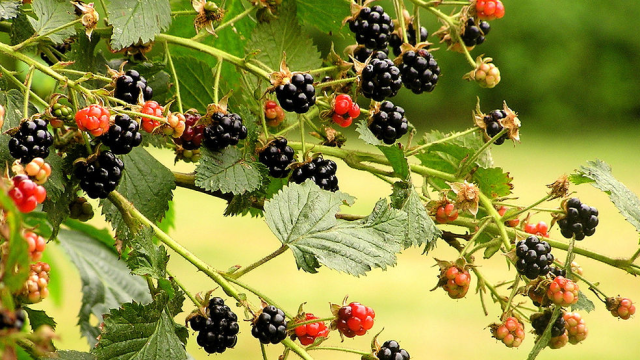Cities have plenty of forageable food available, from plants that grow as weeds to fruit trees and bushes that were either abandoned, or were planted just for looks. But is this food too polluted to eat? Probably not, according to two teams of scientists who have tested it.
Photo by Liz West.
[referenced url=”https://www.lifehacker.com.au/2015/08/the-best-food-you-can-forage-for-in-your-backyard/” thumb=”https://i.kinja-img.com/gawker-media/image/upload/t_ku-large/1362669689076327234.jpg” title=”The Best Food You Can Forage For In Your Backyard” excerpt=”My father has always railed against what he calls “yard clipping salads,” a.k.a. any salad that isn’t made of iceberg lettuce. That’s too bad, because literal backyard clippings (and forest clippings) are not only good for you, but super flavoursome, and can be easily foraged for. (And they’re usually free.) Let’s explore some of the edible weeds, ferns, and flowers that can be found outside your door.”]
Civil Eats reports that Boston’s League of Urban Canners teamed up with researchers at Wellesley College, led by geosciences professor Dan Brabander, to test lead and arsenic levels in fruits and herbs they foraged throughout the city, including by the side of roads. Road dust can contain heavy metals, hence the concern.
Lead and arsenic levels were detectable but low. For example, apples had 0.5-1.2 micrograms of lead per gram, which is similar to the levels in grocery store fruits. That makes sense, because contaminated soil doesn’t always grow contaminated food, according to a group of researchers at Berkeley:
In all the species of foraged greens the [Berkeley] group sent for testing, [statistics professor Philip Stark] says, “we found that even in soils with relatively high concentrations of lead (700ppm), the level of heavy metals was not a concern to eat in moderate quantities.” But Stark also advises foragers to wash all found plants well. “The dust and dirt on the leaves can have harmful levels of lead and other things,” he adds.
These studies are small and can’t guarantee that the dandelions growing in your neighbourhood are good to eat, but they’re a promising start to research in this area. Read more about the safety of urban foraging at the link below.
Is Food Foraged in Cities Safe to Eat? [Civil Eats]

Comments